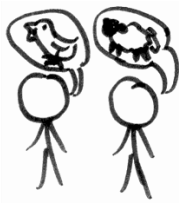Have you ever seen something that, just for a split second, your mind thought was something else. And then you laughed at yourself because the thing you thought you saw would be impossible. (No, that wasn’t Richard Nixon I saw at the mall.)
That happened to me a few weeks ago. I thought I saw an alligator in Romania. To be fair, I was on a boat trip in the Danube delta, and everything around me looked like Louisiana. A river that branches into smaller and smaller waterways, that then open into enormous shallow lakes separated by reed marshes. We saw hundreds of waterfowl: ducks and egrets, both big and small. The rest of the people in the boat were very excited to see pelicans for the first time in the wild. They passed me the binoculars. I didn’t want to spoil their excitement by telling them that I have seen plenty of pelicans and that pelicans are on our state flag.
So when we returned to a small waterway with trees growing in and out of the water and passed pairs of men fishing from flat-bottom boats, and I saw small log floating near the bank, I almost yelled, “There’s an alligator!” Fortunately, my brain quickly remembered that there are no alligators in Europe.
There are, however, Cajuns. Well, sort of. The Lipovan (Lee-po-VAHN) people who live in the Danube delta, often in villages only accessible by boat, and who mostly work in the fishing industry, speak a 300-year-old dialect of a language that is not the language of the country they live in.
Their language, a dialect of old-Russian, is looked down on by both Romanians and by those who speak “proper” Russian. The city folk in Tulcea (population 75,000), consider the 25,000 Lipovans to be smelly fisherfolk who drink too much. Like Cajuns in the 1950s, young people in school may even deny that they speak or even understand their own language. But they do have a rich culture, based on food, family, music, and religion.
I was in Tulcea recording the Lipovanski version of the Jesus film. One afternoon we were recording the narrator, Alex, a young man who also owns the studio. During a break, he grabbed an accordion and sang for us a Lipovan folk song. I was impressed with both his playing and his singing. Alex said that he also sings in church. I told him that I thought it would be very interesting to visit a Lipovan church. Alex explained that the Lipovan Orthodox Old-Rite Church is a branch of the Old Believers, who split off from the Orthodox Church in the 17th century.
In the church they don’t speak Lipovanski, or even Russian. Instead, the service is in Old Church Slavonic. Again, this is similar to Cajuns in the 1950s, whose church services were not even in French, but were in Latin, a language nobody listening really understood. Alex thought it was wonderful that with the Jesus film, the Lipovans would actually get to know the Bible stories instead of just hearing him sing the liturgy in a language they don’t understand.
The last afternoon that we were in Tulcea, after we had finished all the recording and I had put it together with the video, we sat down and reviewed the whole thing to make sure there was nothing missing and there were no mistakes.
Brother Nicu, the representative from Campus Crusade’s partner organization in Romania, sat next to two Lipovan men who had had major speaking parts. Afterwards, Nicu told me that he looked over and saw that both men had tears in their eyes from hearing the word of God in their own language.
Alligators in the Danube may not be possible, but grown men being touched by Jesus’ life and resurrection is. Thank God.
Keith Holmes
.jpg) Earlier this year Keith recorded the Jesus film in Lipovan. Several hundred years ago, this group of people disagreed with Tzar-sponsored changes in the Russian Orthodox Church. They split off a couple of hundred years ago and became known as "Old Believers" because they preferred the old forms of worship to the new changes.
Earlier this year Keith recorded the Jesus film in Lipovan. Several hundred years ago, this group of people disagreed with Tzar-sponsored changes in the Russian Orthodox Church. They split off a couple of hundred years ago and became known as "Old Believers" because they preferred the old forms of worship to the new changes. 







.jpg)




.jpg)





